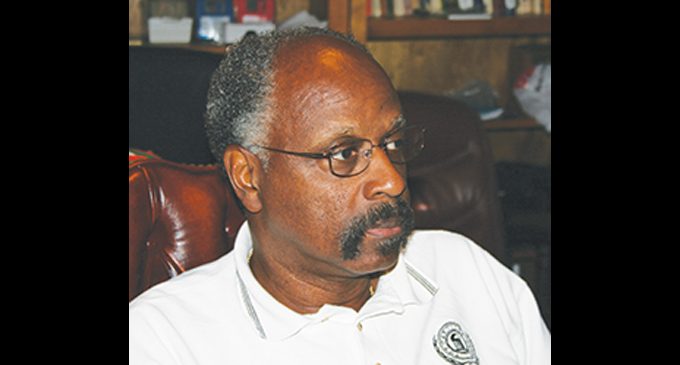Commentary: The road less taken
Richard A. Davis

By Richard A. Davis
He shared a crucible with a frightened bunch of social misfits who would do almost anything to quiet the anxiety of becoming an adult; that tug of war between childhood and adulthood that made them so insecure they would prefer almost anything to being alone.
They hadn’t set out to be dementors – mindless, hate-filled, soul-eating maggots – they grew into it. For Yogi Berra, the choice was simple: “When you come to a fork in the road, take it!” For Robert Frost, it was a dilemma; 45 degrees made a world of difference.
“I never thought of them that way,” he said. “I don’t know what I thought of them, but not like that.” To him, they were just “hard-to-make” friends. He said in effect, “They just didn’t like the way I wore my hair, or the way I talked, or the clothes I wore, or the way I walked, or the way I looked, or any of the other little things that if I changed, they would like me just fine.”
He didn’t think I would understand. But we both faced bullying, 50 years apart; he at Jefferson Middle School in Winston-Salem and I at Whitted Junior High School in Durham. Nostalgically, almost wistfully, we now foist onto it the fabricated embellishment of a war story: “It wasn’t so bad.” The arch-bullies at WJHS, Robert B. and Robert C., sotto voce, “the Two Bobbies,” like Ralphie’s nemeses in “A Christmas Story” – the yellow-eyed Scut Farkus and his little toady pal Grover, reigned terror before and after school, in classrooms and in hallways. To the bane of us all, they didn’t “come by ones.”
Bullying is a perennial part of school life, especially in the middle grades because that’s such a vulnerable time. It collides with adolescence to create an experience that may last a lifetime, for bullies and their prey. When my grandson told me he was being bullied, I joked with him about my own experience with the Two Bobbies to relieve his pain and embarrassment. I let him down. I need to apologize to him as often as he needs it, and as often as I can face up to it. Having said that, I also need to say to the other adults involved: I followed protocol and took his story first to the principal and then to the assistant superintendent for middle schools. After a meeting in the principal’s office, the assistant superintendent turned to the principal she was charged with supervising and said, “Frank, can’t we all just get along?” I was surprised that neither administrator offered to address the issue with any of his teachers, or tormentors. In fact, they took no action whatsoever to address the bullying, as if the meeting solved the problem. This “black guardian angel” who proudly proclaims in private “to be there for black kids” didn’t feel the need to take any action to stop this black kid from being teased, taunted, ostracized, and threatened.
He was what I imagine Yankee closer Aroldis Chapman was like in middle school – a lefty fireballer and star first baseman – that is, if Aroldis Chapman was also an honor student. Jackie Robinson became a national hero for resisting bullies that were never criticized for tormenting him on and off the field. But a child shouldn’t need his forbearance to attend a public school in peace. There is something terribly wrong when being well-behaved, well-dressed, well-spoken, and academically gifted, in a word, an all-round good guy, makes a child a target, when it should put him on the road to the White House, Senate leadership, or the Supreme Court.
I told him what I would tell any child who is bullied: take down the name of every teacher, administer, secretary, janitor, school resource officer, and student you see during the incident, and with your parent or guardian, report it to the principal, the superintendent, and then the school board. But this brave young idealist said, “No, I’d rather handle it myself … because reporting it only makes it worse.” A year younger than most of his classmates, he knew he had to find “a separate peace.” His teachers obviously didn’t care that he was bullied in their classes, since the most egregious acts took place in their presence, or in hallways right outside their classrooms during those perilous ten minutes between classes.
Finally, let me say, being bullied is no joke. (And oh yes, boys will be boys – but only if we let them!) Bullying has to be approached with the moral clarity of a child who is bullied, and of one who bullies.
Dr. Richard A. Davis is a social psychologist who writes about acceptable corruption in public institutions – an ordinary evil. He lives in Pfafftown with his wife Charlene and grandson Chase.















